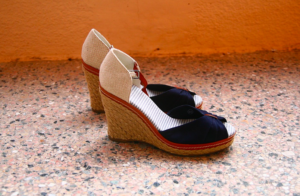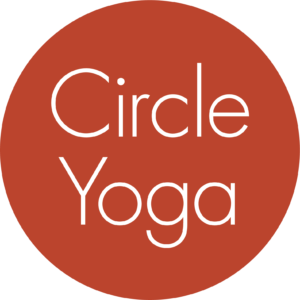October 2019
Thoughts from Annie
Dear Friends,
I hope you all have had a restful summer now that we’ve transitioned into fall. I spent part of August and September on vacation and decided to put my work aside to create some space to really be present. This month, I’m resharing a blog that I wrote several years ago about finding wisdom in the present moment, which was comforting to read again.
I share how part of the practice is facing our choices – and no matter what choice we make, it will always affect others. Being aware of this can cause me to freeze at times when making decisions, knowing my decision may cause suffering. Thich Nhat Hanh says that our teachers offer us wisdom and our communities offer us wisdom, but the most perfect teacher is the present moment.
Today’s blog is a reminder to come back to where we are, and allow the present moment to be our guide when faced with choices.
with love,
annie.
Mindfulness and Cute Shoes
This blog post was originally published in August 2013.

Practicing mindfulness isn’t always easy. Considering whether to buy a cute pair of shoes is harder since I started seeing how everything in the universe relies upon everything else. Knowing I am part of the web of life, I can’t live my life the way I always have. Changing my conditioned way of thinking – literally changing my brain – has been uncomfortable. It’s a lot easier to let my neurons fire in their same old way, than it is to consider each moment freshly.
That’s because our brains are designed to create order out of the world — we are habit makers. The practice of mindfulness continually breaks up our habits in order to free us from our conditioning and reminds us how dependent we are on each other. And that can make us feel less grounded and more confused about how to act in each moment.
In this New York Times article, Michael Pollin described the 100 trillion microbes living in and on our bodies on whom we depend for our health and well-being. Thich Nhat Hanh says that the sun is our “heart outside of our bodies” because it is just as imperative for our survival as the heart inside our chest. Everything relies on everything else.
Knowing this, how do I decide whether to order those shoes or even what to eat for lunch? Do I need to check in with my microbes? Do I eat in a way that destroys the earth on which I depend? Do I buy shoes made in a country in which people are suffering in unhealthy work conditions? Do I choose to give money to a homeless man on the street, or spend that money on an herbal iced tea? Everything I do to someone else, I am doing to myself as well.
It starts to get really difficult. But even though it’s difficult, we have to act.
So where do we turn to help us decide what to do? Thich Nhat Hanh says that our teachers offer us wisdom and our communities offer us wisdom, but the most perfect teacher is the present moment. Phillip Moffitt says that each moment “self-liberates.” And since it’s always fresh, there’s no way to plan for the present moment.
Like trying to plan for the first time you have sex or for being a parent, it just can’t be done. It’s only in each moment that we can experience life. As Tolstoy teaches in his famous story “The Three Questions”: the most important person is the one in front of us, the most important activity is what we are doing, and the most important time is now.
So the challenge is to trust that in any moment we will have the wisdom to know how to act from our deepest intentions of compassion and loving kindness. And the way to develop this ability is through mindfulness. The more we are able to be present, the more we see that we are interdependent with all that is, and the more we are able to bring that wisdom to the next moment. It’s a moment-by-moment practice.
Much as I would like there to be, I have found that there is no “right” answer to every situation. There’s just my willingness to be in this moment and experience my dependence on everything in the universe. The only way to plan for any future moment is to live fully in the moment I am in now. Then when that future moment comes, I will be there waiting for it with a clear mind. And I may even know whether to order those shoes.
with love,
annie.

Hello my dear friend,
As ever, thank you for your thoughtful reflections.
In my work at Saybrook University, I coordinate and teach a graduate program in Mindful Leadership geared toward healthcare professionals. My students go on to do doctoral dissertation research in this area, and their questions often involve how mindfulness is directed towards improved organizational function and life.
One issue that comes up involves achieving a definition of a mindful leader. There are many ways to approach this question: philosophically, empirically, in theory and practice. As a great teacher and practitioner yourself, I would appreciate your thoughts on a simple question: Does the mindful leader need to have their own personal, regular, mindfulness practice?
Sending fond best regards,
Luann Fortune
Hi Luann! So nice to hear from you. My short answer is yes.Mindfulness, like yoga, is a practice, not a concept. It would be funny to think about a yoga teacher who doesn’t have a yoga practice because their teaching would come only from their mind, and not from their experience. In the same way, a mindfulness leader/teacher would need to have their own regular mindfulness practice (whatever that might look like) in order to be a role model in that area. What do you think? xo annie.